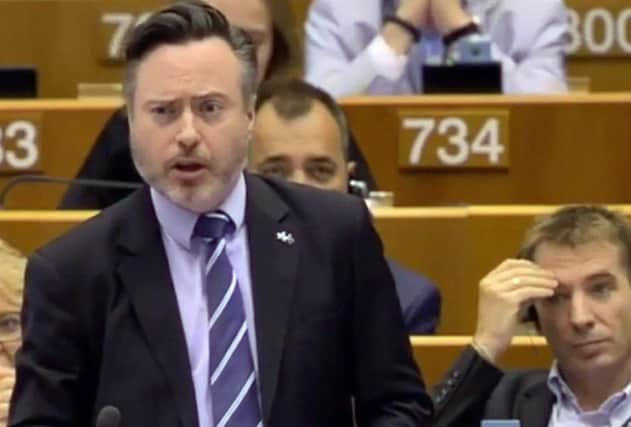Analysis: How big a problem are '˜cybernats' for the SNP?


As a senior figure in the party - he ran unsuccessfully for the party’s deputy leadership last year - his comments carry weight.
The SNP has suspended members in the past over the issue, but there doesn’t appear to be specific guidelines from the party over how individual members should conduct themselves on social media.
Advertisement
Hide AdAdvertisement
Hide Ad“I would like to see a specific code of conduct in my own party with four or five simple points that everyone agrees on, including a ban on the kind of anonymous accounts which seem to enable people to be so unpleasant,” Smith said.
Some in the the party still think its reputation for being home to a not insignificant minority of online trolls is unearned.
Others are acutely aware that while not every incident costs votes, an accumulation is potentially damaging to the party’s reputation in the medium to long term.
But how big a problem are so-called cybernats?
A potted history
Even before the days of Twitter, political blogs and messageboards of all stripes were often awash with distasteful comments. Not much has changed in that regard.
Pro-independence writiers and activists, some disdainful of the ‘mainstream media’ landscape were early adopters of blogging and social media.
The term ‘cybernat’, combining the traditional pejorative term for an SNP supporter with a digital flourish, is believed to have been coined by Labour peer and former MSP Lord George Foulkes. It’s a term the Twitter-savvy Lord still uses, and his fellow pro-union politicians aren’t shy about using the tag.
In 2015, Labour went as far as publishing a dossier which listed as many as 50 so-called clybernats.
The document listed numerous tweets denouncing supporters of the Union as “quislings” and “traitors”.
Candidates and MPs
Advertisement
Hide AdAdvertisement
Hide AdAlyn Smith wasn’t talking about his fellow parliamentarians when he called for a code of conduct. But elected represnativies have caused controversy for online posts.
Some of the more colourful members, and former members, of parliament, were far from shy about sharing memes that more considered SNP politicians like Smyth and Nicola Sturgeon wouldn’t dream of tweeting.
Pete Wishart, recently re-elected as an MP by a wafer-thin margin, was criticised during the election campaign for sharing a graphic on Twitter which marked out unionist parties as being varying degrees of ‘wanker’.
And former MP Paul Monaghan shared a video which claimed the BBC weather map was a conspiracy to make Scotland appear smaller. He was also criticised for appearing to encourage the work of a racist cybernat who he had told to ‘keep it up’.
Perhaps the most high-profile example was the 2015 SNP candidate for Edinburgh South, Neil Hay. He was revealed as a prolific tweeter who went by the moniker ‘Paco McSheeple’
While it is difficult to quantify, his unmasking was considered by some senior SNP activists as having a role in his eventual defeat at the election.
Perspective and the future
Of course, examples of poor online behaviour are not limited to the SNP. Smith’s call was aimed at activists of all political parties.
And many SNP politicians, especially female ones, have been victims themselves of hateful language and abuse.
Advertisement
Hide AdAdvertisement
Hide AdAs the survival of MPs like Pete Wishart shows, it is also possible to indulge in provocative online comments and still win elections.
But to simply assert that the SNP hasn’t had its problems to seek with anonymous (and subsequently unmasked) members online would be churlish.
That’s something that Smyth clearly recognises. With the SNP hopeful of staging a second independence referendum in the near future, it’s a problem worth tackling.